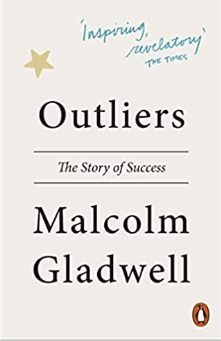In Malcolm Gladwell’s 2008 book, Outliers, he promotes the 10,000-hour rule.

This is the idea that if you spend 10,000 hours on any skill you will reach mastery.
“Gladwell uses several examples in Outliers when introducing this rule: one is the research that focused on violin students at a music academy in Berlin. The study found that the most accomplished of the students had put in 10,000 hours by the time they turned 20. Gladwell also estimates that the Beatles put in 10,000 hours of practice playing in Hamburg in the early 1960s, and that Bill Gates put in 10,000 hours of programming work before founding Microsoft. Hence the 10,000 hour rule was born: put in your 10,000 hours of practice, and become an expert in a given field.”
A lot of research challenges the rule and says the 10,000 number is flawed.

It’s arbitrary, was just an average, not science-backed etc.
The closer you look and think about it, it’s just a number.
Not all practice is equal
It’s pure repetition and not deliberate
Regular practice is the act of rehearsing a behaviour over and over.
Deliberate Practice is about working on specific areas and improving weaknesses.
Deliberate Practice is purposeful and systematic.
We could all improve our craft by being more deliberate with our practice.
How do I practice more deliberately?
Study - study the game. Read books, listen to podcasts, and immerse yourself in your field. What are the pros or more experienced people doing? What can you learn from them?
Goals - what’s the specific goal or thing you want to improve on? Is what I am doing going to get me closer to my goal? No, stop doing it then.
Feedback - whether you have a trusted mentor or support team, you’ll want to instruct people to observe you demonstrating this skill and provide feedback.
Consistency - actively practise and incorporate feedback into your practice. It’s not about 1 or 2 big sessions, it’s about turning up regularly and contributing to your learning.
Seek - actively ask your team or leader to identify opportunities for you to practice this skill in public.
Mistakes - be willing to make them. In order to learn quickly you need to make mistakes, it opens up a higher level of self-awareness when you evaluate what went wrong.
Varying Levels - you’re not going to get better, just like video games, if you play at the same level. The bar needs to be raised. Seek out higher levels. You might have to fail or get uncomfortable playing with the big kids but you’ll grow a lot.
Practicing anything with repetition is useful to a point and will lead to improvement, but if you want to reach a higher level, you need a strategy and a plan, and importantly you need to be extremely intentional.
All the best
David
Resources Of The Week
YouTube - The Best Productivity Hacks of All Time by Ali Abdaal. This is gold. Ali is a popular YouTuber who has been studying Productivity for over a decade. In this video, he brings together the best productivity hacks to help you to be more effective and productive with your time.
Book - Hello Stay Interviews by Beverly Kaye and Sharon Jordan-Evans. This book is simple, it’s about having meaningful check-ins with your team to ensure they’re happy in their roles. As opposed to asking them how you could have provided a better experience during an exit interview when they’re already halfway out the door. “Hello Stay Interviews” should form part of your engagement and retention plans.
Book - Oz Principle by Roger Connors. The Oz Principle is the groundbreaking work that demonstrates the vital role of accountability in the achievement of business results and the improvement of both individual and organizational performance.
Quote of the Week
“Take chances, make mistakes. That’s how you grow. Pain nourishes your courage. You have to fail in order to practice being brave.” - Mary Tyler Moore
If you’re finding this newsletter valuable, consider sharing it with colleagues, or subscribing if you haven’t already.